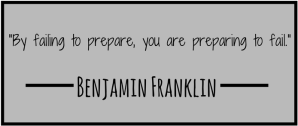National Preparedness Month is coming to an end; here is a list of what we covered the first two weeks!
Week 1: “Get Ready”
- Common natural hazards in Ohio: floods, tornadoes, winter storms, and extreme heat.
- Get information on when and where a threat has the potential to develop!
- Know the difference between a watch and a warning
- Watch means that conditions are favorable for dangerous weather and to be alter for changing weather conditions
- Warning means that immediate action is to be made, and is only used when severe weather is about to strike.
- Keep all family members involved in all steps of the planning, including children
- Family communication plan: contact list with names and phone numbers, as well as where to go in the event of an emergency
- Tailor your plans and supplies to fit your specific needs and responsibilities
- Have a plan for any type of location, it is likely that you and/or your family members will not be at home during an emergency.
- Ready.gov provides information on how to prepare for different locations. Questions you should ask your child’s school or even your workplace in the event of an emergency:
- Ask schools how they will communicate with families during a crisis.
- Ask if they store adequate food, water and other basic supplies.
- Find out if they are prepared to “shelter-in-place” if need be, and how they plan to go if they must get away.
- If you are an employer – make sure you have appropriate supplies on hand and include a plan for if your employees can’t get home.
- ID your pet. In an emergency situation having your pet wear and ID tag can help rescue workers contact you when the pet is found.
- Make sure you have a safe place to take your pets in case of an emergency because not all shelters all pets.
- Create an emergency kit for your pets. These kits can include food and water, medications and medical records, cate litter and litter box, leashes, collars, pet toys, a photo and description of pet, as well as veterinarian contact info.
- Look back at September 6th for how to stay connected through media sites. Some of the sites include Facebook and Twitter
Week 2: “Get Involved”
- Ready.gov recommends that the community, as a whole, “participates in activities to make their families, homes and communities safer from risks and threats.”
- Volunteer through organizations such as: Community Response Team (Lucas County does have one), the Medical Reserve Corps, Citizen Corps, American Red Cross and/or faith-based organizations who are active in supporting disasters.
- Participate in CERT Basic Training courses or through Teen CERT programs
- Training opportunities are also available through FEMA and have a lot of different courses that are at no cost to the individual
- Attend Safety Town events within the community. Children can learn about what their local fire departments and police departments do in the event of emergencies
- Business preparedness means taking charge and having a plan prepared for emergencies
- Five steps in developing a preparedness program: program management, planning, implementation, testing and exercise, and program improvement.
- First responders include law enforcement, fire fighters, and emergency medical personnel. These individuals can serve as a role model in the community by properly preparing themselves and their families for an emergency
- Be sure to speak with your employer about emergency response drills.
- For those with disabilities – PLAN AHEAD! Make sure that you are able to execute your preparedness plan in the event that there is no assistance available


